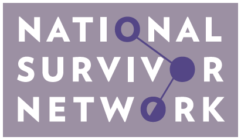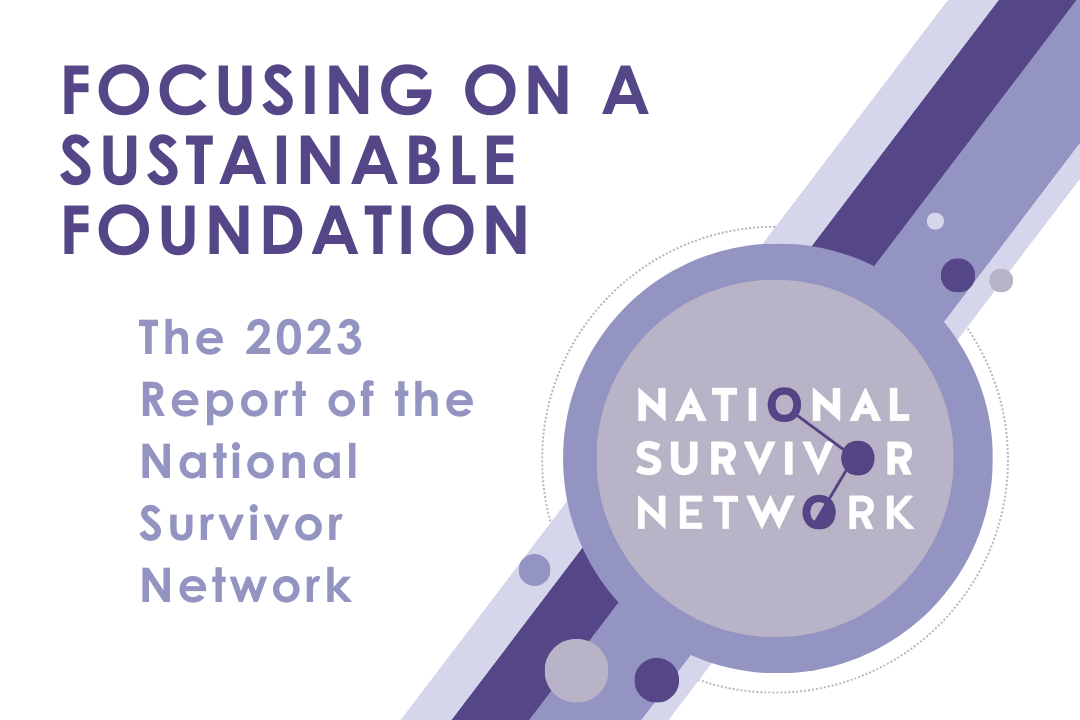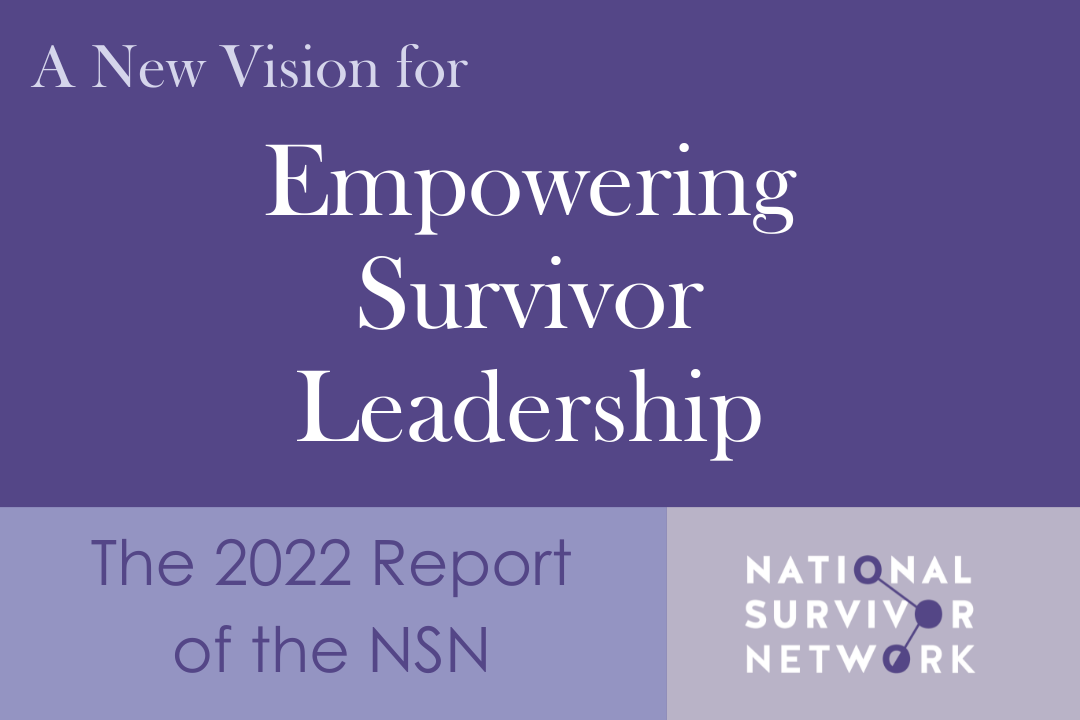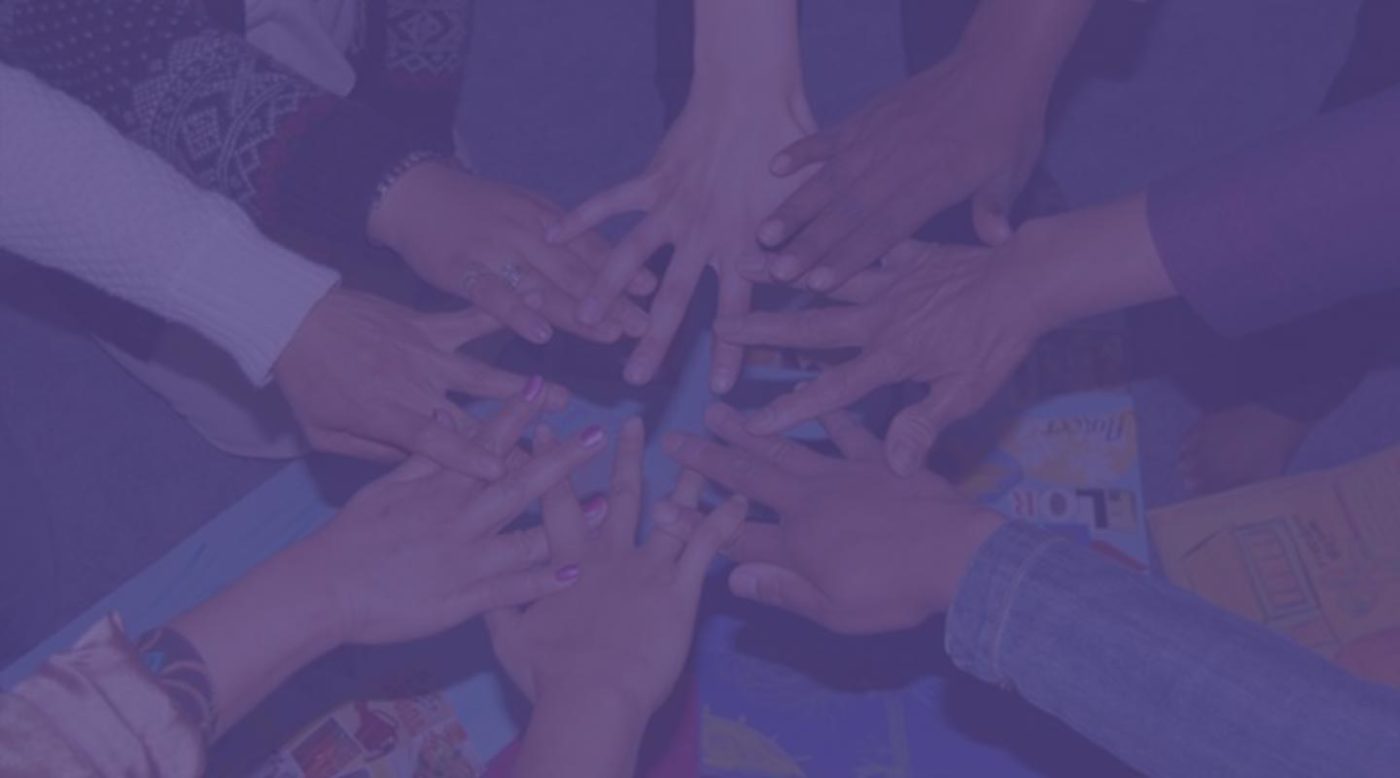
MISSION
To develop, equip, and empower a community of survivors of human trafficking engaging in advocacy, education, peer-to-peer mentorship, prevention, and policy work using a public health framework and human rights approach.
About the National Survivor Network (NSN)
The National Survivor Network (NSN) is a values-based, survivor-led professional membership community for survivors of human trafficking who are engaged in or preparing for leadership in the many movements to end violence, whether as professionals, activists, or community organizers.
Our leadership is made up of a full-time manager, a steering group, and working group co-facilitators. Working group co-facilitators serve 12-24 month staggered terms and can rotate through leadership on different working groups throughout their time in the NSN. The Policy Working Group (PWG) coordinates the NSN’s policy advocacy and civic engagement work. The Membership and Community Working Group (MCWG) oversees new applicant interviewing and onboarding and supports conflict resolution within the network. Current MCWG co-facilitators also serve on our Steering Group alongside its other members. The Steering Group’s primary task is providing guidance on major NSN decisions that impact members, as well as revising, clarifying, and creating foundational practices and documents that align with our non-carceral values. This includes our Expectations for How We Show Up (formerly “Code of Conduct”), safeguarding practices, grievance procedures, and disability justice framework. The Learning and Training Working Group (LTWG, currently paused) develops our skill sessions calendar and supports our training and educational programming.
We have been rolling out new working groups every 6 months or so, and hope to roll out additional ones soon. It is our vision that within 5 years we will have a poll of 12-20 members who have served on all working groups and are intimately familiar with the core functions of the network. This is in alignment with our grassroots, community-organizing lens: While we are a nonprofit program, we aim to do our work to build collective survivor power, rather than individual.

Member Researcher Space Facilitator, Learning and Training Consultant
Chris Ash (they/them) started their community healing work in 1994 as both a suicide hotline volunteer and LGBTQ activist and organizer. Since then, they’ve worked as a dance teacher, music teacher, tutor for autistic kids, minister, doula, childbirth educator, payables specialist, server, retail worker, and writer while continuing organizing and community advocacy on the side in a variety of volunteer positions. In 2009, they started answering hotlines at a rape crisis center in town with a major university, and from there they spent almost a decade answering hotlines, doing hospital and court accompaniment for survivors, and training and supervising hotline staff. In 2018, they began their work at the North Carolina Coalition Against Sexual Assault providing training and technical assistance (TTA) to all of NC’s 78 rape crisis centers, first on human trafficking and eventually as the CDC-funded TTA provider for all the state’s federally-funded sexual violence prevention work. From 2021-2024, they were the Survivor Leadership Program Manager at the Coalition to Abolish Slavery and Trafficking, where they managed the National Survivor Network. They are the co-founder of a new global initiative expected to launch in 2025, a presidential appointee to the United States Advisory Council on Human Trafficking, and a member of the Lived Experience Panel of the Global Commission on Modern Slavery.
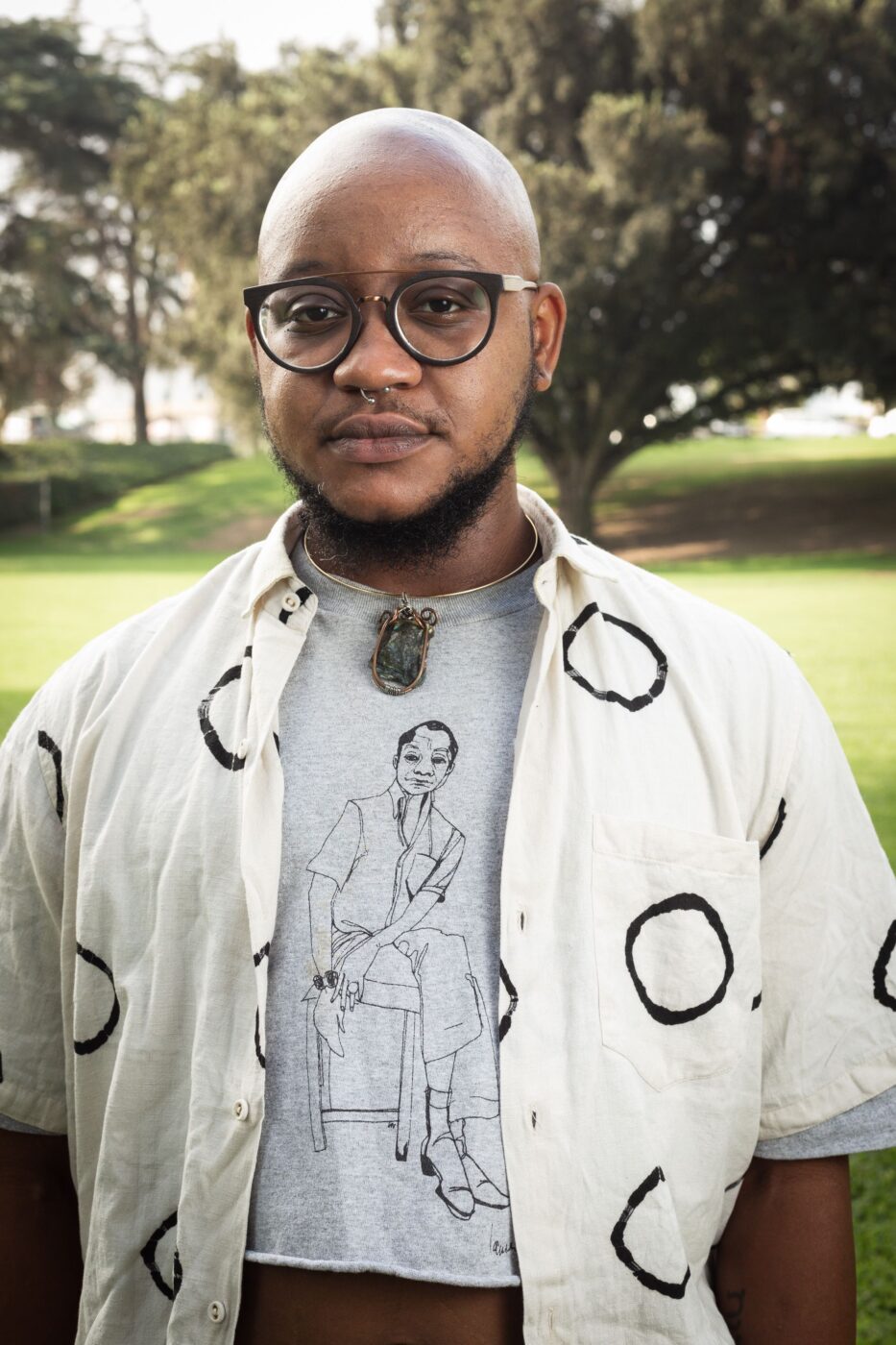
Steering Group Member


Policy Working Group Co-Facilitator

Policy Working Group Co-Facilitator
Anne Kinsey (they/them) is the founding executive director of Love Powered Life, a 501(c)(3) nonprofit organization providing healing services to people with lived experiences of human trafficking and their family members. In their work there, as well as in private practice, Anne is a trauma-sensitive Othmer certified neurofeedback practitioner, HeartMath certified HRV biofeedback practitioner, trauma recovery coach, and writer. As a human trafficking consultant, Anne collaborates to provide trauma-informed, survivor-informed, internationally distributed live and pre-filmed trainings on human trafficking prevention, intervention, and recovery for governmental and nongovernmental organizations, educational institutions, legislators, and individuals.

Survivor Leadership Program Manager
Rebekah Layton (she/her/hers) is an educator, advocate, activist, and community member. Rebekah received her M.A. in Restorative Justice, where she focused much of her research and practice on building alternative responses to interpersonal, domestic, and sexual violence and advocating for survivors of violence who have been criminalized. She is a consultant at the local, national, and international levels. In her work with various organizations, she has aided in building programs centered around communities served in areas such as peer support, trauma recovery, community-based advocacy, and building community accountability. Prior to her role as SLPM she coordinated survivor engagement TTA projects coordinating NSN TTA Consultants and projects. She is an adjunct faculty of sociology, criminology focusing on crime, inequality, restorative and transformative justice and strives to create more accessible learning environments for her students. She is an advocate/activist for human rights at the intersection of human trafficking, disability justice, racial justice, gender justice, transformative justice, and social justice. She has held a governor-appointed seat on a statewide human trafficking council and task forces, advocating for survivors’ voices, identifying gaps, and making recommendations for the state’s legislature. She is also a volunteer restorative justice circle keeper with adult survivors of child sexual abuse. Rebekah is a survivor, a mother, a dancer, a healer, and a dreamer.



Policy Working Group Co-Facilitator
Fenix McClay: As a survivor, I am dedicated to advocating for and supporting survivors of exploitation by improving program services and connecting individuals to trauma-informed care. In my free time, I find solace and inspiration exploring the beach with my Boerboel, Bubbles, embracing the serenity and beauty of the PNW coastline.

Membership and Community Working Group Co-Facilitator, Steering Group Member

We allow all of our members who are involved in leadership to remain anonymous externally if they choose, given the sensitivity of disclosures of survivorship and the history of harassment of survivors who do not agree with mainstream anti-trafficking approaches. Among those who have chosen not to disclose or have not yet consented are:
Membership and Community Working Group: Two additional co-facilitators
Steering Group: Three additional members
Policy Working Group: Four additional co-facilitators
About Our Human Rights Framework
Our approach to ending and addressing human trafficking emphasizes survivors’ human rights – which were violated through their trafficking experience – most famously outlined in the 2000 United Nations Protocol to Prevent, Suppress and Punish Trafficking in Persons. Human rights considerations include recognition of the undeniable right to self-determination, safety, housing, education, and employment, as well as economic, social, political, medical, behavioral, and spiritual well-being. We cannot repair the harm of trafficking and empower survivors’ leadership without prioritizing these concerns.
Commitment to human rights aligns with proven prevention and resilience models. When survivors demonstrate particular vulnerabilities to re-trafficking or other forms of exploitation after their initial exit, ensuring holistic wellbeing through a human rights lens contributes to increased resilience. This process involves reducing risk factors and drivers for human trafficking, including poverty, social inequality, and lack of economic opportunities. Using a human rights lens through the spectrum of service delivery – including emergency services, needs and goals assessments, and long-term case management provision – increases the likelihood that survivors gain and sustain accomplishments, a sense of safety, and individual agency.
Using a human rights lens throughout our approach to survivor empowerment and policy work fosters survivor wellbeing and increases survivors’ effectiveness as advocates and leaders. A human rights approach also leads to policy and protocols that are inclusive, are less likely to have harmful impacts on already-marginalized communities, and that help survivors regain agency that was taken from them through trafficking.
Please see our full Values Statement for more information about how we approach our work.
View our 2023 Report: Focusing on a Sustainable Foundation
View our 2022 Report here: A New Vision for Empowering Survivor Leadership
Support Our Work
The National Survivor Network is a program of CAST. Please consider a donation to the National Survivor Network. Donate here: DONATE
